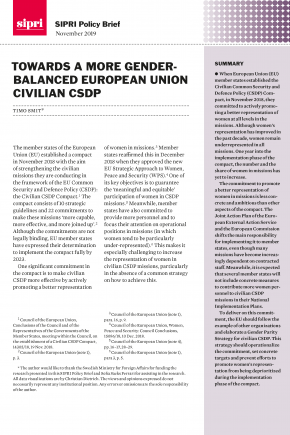Towards a More Gender-balanced European Union CSDP
When European Union (EU) member states established the Civilian Common Security and Defence Policy (CSDP) Compact, in November 2018, they committed to actively promoting a better representation of women at all levels in the missions. Although women’s representation has improved in the past decade, women remain under-represented in all missions. One year into the implementation phase of the compact, the number and the share of women in missions have yet to increase.
The commitment to promote a better representation of women in missions is less concrete and ambitious than other aspects of the compact. The Joint Action Plan of the European External Action Service and the European Commission shifts the main responsibility for implementing it to member states, even though many missions have become increasingly dependent on contracted staff. Meanwhile, it is expected that several member states will not include concrete measures to contribute more women personnel to civilian CSDP missions in their national implementation plans.
To deliver on this commitment, the EU should follow the example of other organizations and elaborate a gender parity strategy for civilian CSDP. This strategy should operationalize the commitment, set concrete targets and prevent efforts to promote women’s representation from being deprioritized during the implementation phase of the compact.

